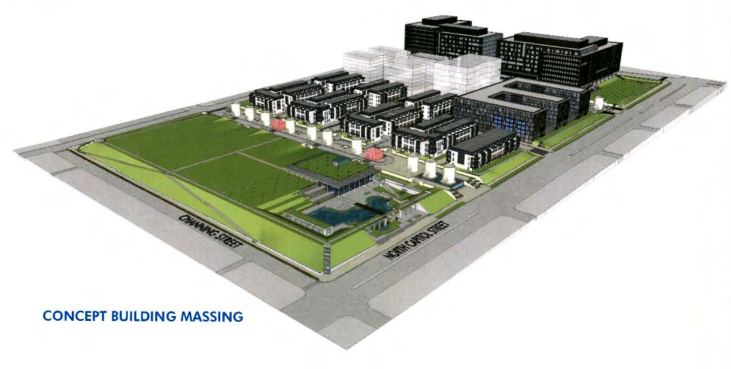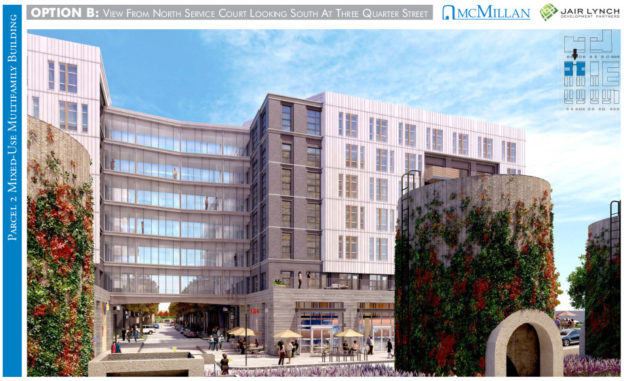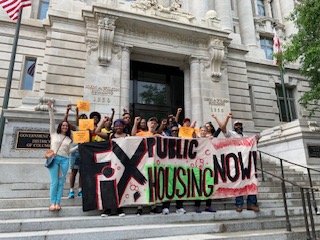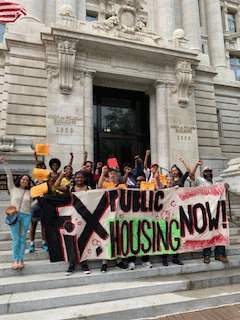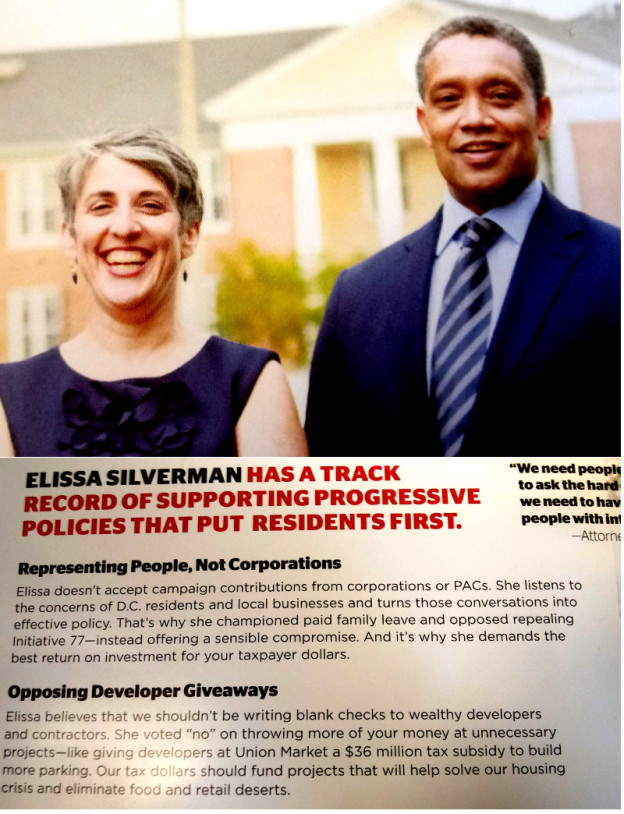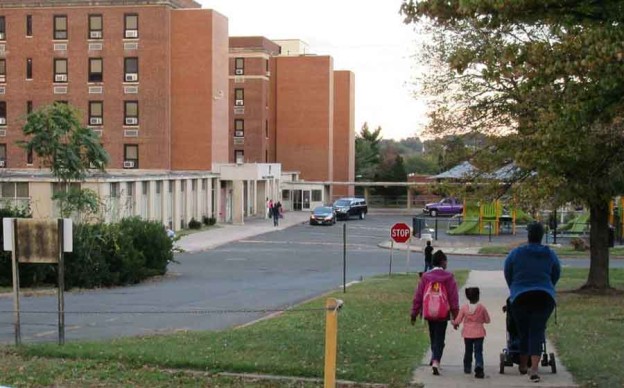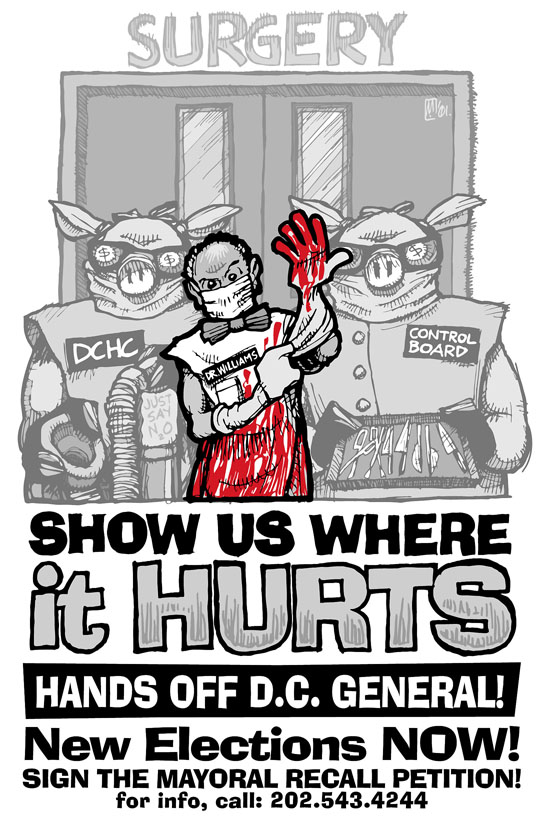UPDATE ON SEP. 11, 2019, MEETING AT METRO WASHINGTON COUNCIL OF GOVERNMENTS (COG) REGARDING HOUSING IN THE DMV THROUGH 2030
On September 11, 2019, the COG passed a joint resolution that sets into motion the coordination of housing preservation and production targets across the DMV. The goal: 320,000 new or preserved housing units by 2030, and of these 2/3 of the units should be considered “affordable.” Chair of the COG, DC City Councilmember, Robert White, emphasized that these units should be built to include 3+ bedroom units, aka family-sized units.
Find the COG documentation and resolution below:
* https://www.mwcog.org/newsroom/2019/09/11/officials-set-regional-housing-targets-call-for-collaboration-to-address-production-and-affordability-challenges/
============================
RESOLUTION R27-2019
============================
Major points:
- 320K Housing Units Added 2020-2030 (an additional 75,000 units beyond units already forcast)
- 75% of all new housing should be located in activity centers and around high activity transit (see definitions above)
- 75% of all new housing should be “affordable” to lower- and moderate-income housing (see definitions above).
- To share these goals to all constituents and set targets for each jurisdictions.
- To work with non profit private and philathnropic entities to advance these goals
ROBERT WHITE — AYES UNANIMOUS RESOLUTION MWCOG R27-2019 PASSES SEP 11 2019
============================
DEFINITIONS
============================
In reviewing the resolution and information from the COG about the Housing Production targets please understand the following definitions as they can be interpreted:
- Accessibility — Locating housing close to transportation, transit centers, or “activity centers.” This term has almost nothing to do with universal accessibility a principle of the disability advocacy community.
- Affordable Housing — Housing that costs $2,500/m or less. There is no mention of bedroom sizes or housing costs as a percentage of one’s income. It is strictly the government setting levels of profit making, shifting market forces and volatility from the private sector onto the public.
============================
NEWS REPORTS
============================
Some news reports that came out after:
============================
OMISSIONS IN THE DISCUSSION
============================
The following are basic planning concepts that wasn’t discussed at all or just briefly by COG before passing the resolution:
- Expiring Affordability — What is the duration of affordable covenants that may run with the land? Shouldn’t we be ensuring that any new or preserved affordable housing exist in perpetuity. What’s the point of expiring affordable housing covenants?
- Public / Universal Housing — The COG made no mention of the importance of public housing and public land while setting these housing targets. Public housing is a permanent safety net to prevent homelessness.
- Analysis of $2500/m — How realistic is it to say “affordable” housing set at $2,500 a month. Doesn’t this just push the status quo?
============================
SOME QUOTES FROM THE COG MEETING
============================
* CHRISTIAN DORSEY, ARLINGTON, COG — “Ready and willing to do our part” “I love three simplistic targets” “This is a big setp for our region” “Our region has failed to effectively deal with housing” “Its complicated” “Roads are full of traffic” “Net effect people are harmed” “Targets are based on thoughtful analysis” “Provide accountability” “Concept of regionalism should not be understated” “lets get it done, im excited”
* DERRICK DAVIS, PG COUNTY, COG — “we explored, what the heck is ami” “no better place to be than the dmv” quotes victor hoskins … as a great thinker. “messaging is absolutely important, crucial to drive home, to give politicos the right message to communicate with our folks”
* JOHN FOUST, FAIRFAX — “economic development critical” “Fairfax board has committed to 5,000 units over 15 years”
* NANCY NAVARRO, MOCO — asks about the “defintion of high impact areas” when referencing jbg report; emphasizes “social justice and racial equity”
* JUSTIN WILSON, ALEX — “addressing concerns about impacts such as overcrowding schools”
* BEV PERRY, DC — “more work needs to be done”
* KATE STEWART, TKPK — “Board Retreat was helpful” quotes Matthew Desmond “Its hard to argue that housing is not an fundamental human need” … “we’ve been echoing that sentiment” “this is an historic event today” “wants to partner with Mont County”
* RUTH ANDERSON, PRINCE WILLIAM, — “Cast vote in favor” “this will help us forge our comprehensive plan”
* SENATOR GEORGE BARKER, VA, “we gotta keep stepping things up” “things already happening that are pushing us in the right direction” “fairfax is doing a tremendous job in preservng affordable housing”
* BRIDGET NEWTON, ROCKVILLE — “i think this is wonderful what we are doing with housing” “something mr jackson said, taking over current garden style neighborhoods and that we need to build hi-rises — its a problem. its a quality of life issue, displacement of current families. there’s something to be said about having a balcony, to play outide, etc.” “we don’t need 2 types — hi rise or single family” “we need a mix of housing and therefore we lived in communities with all kinds of careers and picture, and we must look at the whole picture” “climate of fear — when people hear about more housing they immediate fear the impacts to roads and schools”
* TODD TURNER, PG — “impacts that come along with the housing” “what the pressure brings to things like infrastructure” “we have to be very careful about that”
* SHARON BULOVA, FAIRFAX — abt to introduce resolution “region forward compact in 2010” “we’ve had more success in the goals than we’ve realized” ** “our air is better” “we set targets to clean up our air, and we’ve done that.” “amazon — needs affordable housing” “we need to make sure weh have housing and quality of life for the industry we want to attract and retain in our region” “we want to create affordable housing for the folks we want to work here and live here”
===
end
===

